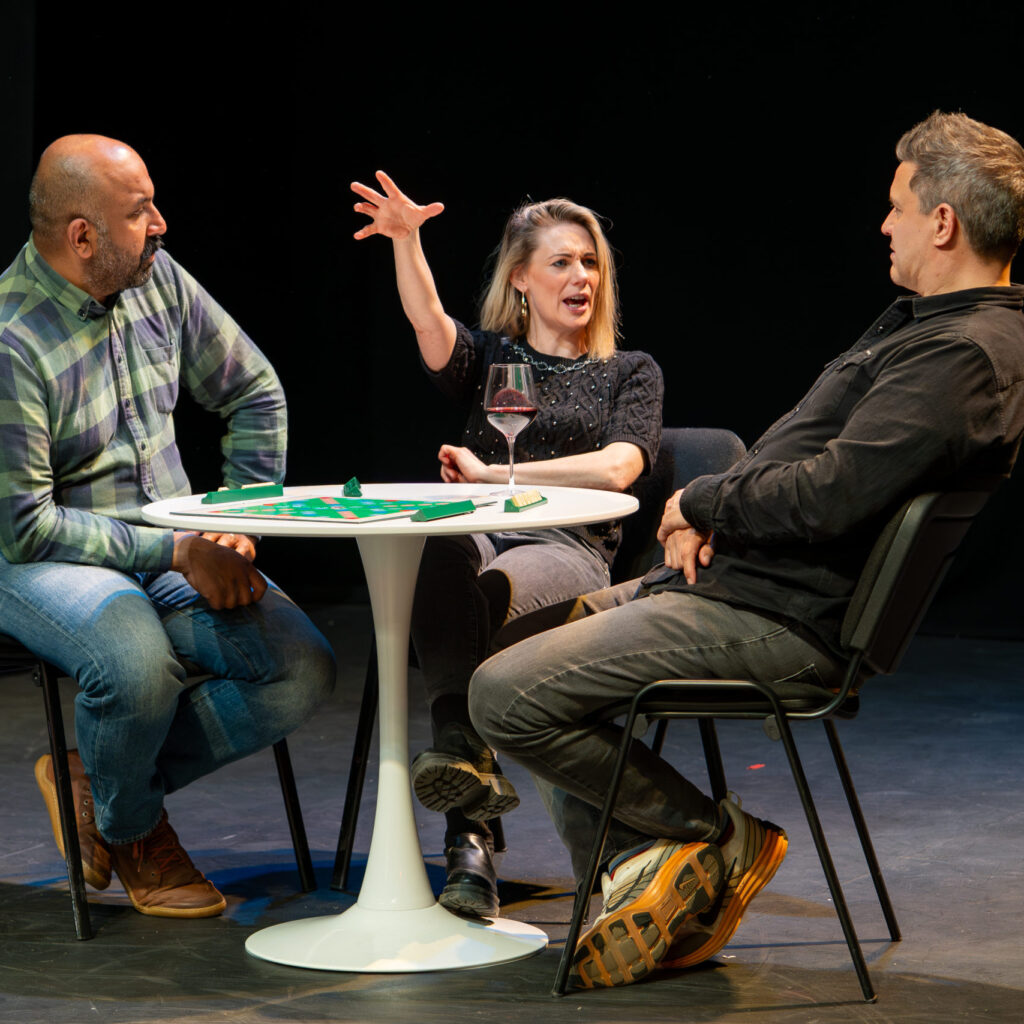Greenwich Theatre – until 24th May 2025
Reviewed by Ben Jolly
3***
There’s a dense cloud of dry ice oozing from the stage and the sombre soundtrack of nostalgic piano pop-covers offers an atmospheric greeting as we enter the auditorium of Greenwich Theatre where a revival of Jez Butterworth’s critically acclaimed play, Parlour Song has just opened. Through the dimly lit stage, we can make out Emily Bestow’s well thought out set design consisting of a midnight blue structure representing a house, starkly contrasted with clinically bright white household items scattered around the set and a projected floor plan with white tape on the floor of the stage to indicate doors and walls akin to a practice often used in the rehearsal room; these elements lead me to believe at first glance that this production has chosen to lean into the darker side of this “darkly comedic” play.
For this piece, Butterworth opted to investigate the life of suburbia in England; whatmaterialises in the life behind the white picket fence and how does life go on with want and desire continuing to interrupt the realm of “happily ever after”? We have Ned our tragi-comedic character and his wife, Joy; joining from next door is Dale who is also married with two children. The dust has well and truly settled on Ned and Joy’s eleven-year marriage and with routine and stability births new problems of desire and paranoia between them.
Dale arrives on stage, “It started slowly.” he announces soberly, and we start at the point where it all began, with the cracks just starting to show in Ned’s psyche. Throughout the various comedic beats in the inaugural scene, it is evident that the macabre undertones weigh down the lighter, witty dialogue and continuing from scene to scene, it’s an uphill struggle for the cast to bring the audience in on the joke. Despite this, Naveed Khan is a great tonic with his theatrical energy, masterful physical comedy and range. Kellie Shirley as Joy is sexy and sultry, who in contrast to Khan, opts to internalise her performance, cleverly leaving you to want more. This stark opposition in dynamics only highlights the couple at odds. Jeremy Edwards plays the “everyday man”, Dale with charm but lacks any further findings in his character development resulting in an unbalanced feel of characterisations.
James Haddrell’s staging is a masterclass in the macabre but does not organically lend itself to the comedy. The momentum suffers with the Pinter inspired pauses and each scene is stretched out to the point where it wears thin over time. The aesthetic of the piece and character motivations appear contrived as the play reaches its conclusion just in time narrowly avoiding outstaying its welcome.
For completists of Butterworth’s work who might have missed this earlier piece or fans of the cast, the trip to Greenwich Theatre will undoubtedly prove worthwhile. However, despite evident effort from the cast and crew, the production ultimately falls short in its comedic potential.

